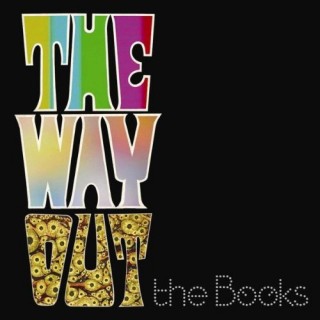
The Books: The Way Out
By David Amidon 21 July 2010The Books have always been a psychedelic listen, but never has the experience been so trenchantly mind altering as it is here. Even as far back as their debut Thought for Food, a release that stands not only as a magnum opus for the group but sound collage as a whole, the group was selling out-of-context vocal found sounds over strident, folk-oriented string instruments. Mainly cello. And the result has always been something sort of new age, likened to self-help but not quite helpful. Enlightenment often seemed enough. Essentially, the Books made music that made you think without thinking and know without knowing. Stuff with a point; art, but stuff without a common musical use; ambience. But The Way Outtakes this a little further. From the beginning of this album it is clear the group aims to expand your understanding of the world’s machinations through psychedelia and disorientation.
It begins with the artwork, very essentially 1960s and acid a-blazing. It starts with the new age deconstruction of matter that is “Group Aesthetics I”, the first Books noise in nearly five years, and follows all the way to the sequel in the final stanza. The Way Out is a record that, ultimately, argues life is not to be taken seriously, that the greatest tragedy is but a gift. The introduction argues, for example, that a lack of vision is but more opportunity for thought, for freedom beyond the material. As the album continues through the absurdly confident, Avalanches-worthy pastiche of “A Cold Freezin’ Night” to the psychological Built to Spill on Ketamine presentation of “We Bought the Flood”, it is a question that is continuously asked again and again: what is “out”, and how do I achieve it?
You see, The Way Out is an album framed by identity. So, while the entire middle half is indeed somewhat unremarkable compared to the band’s output in the decade prior, it is hard to say that the album as an entire work is less than one would expect. Familiar elements as well as newer, more schizophrenic ones, are present throughout the release. It is certainly hard to frame this album in any terms other than “the next Books album”. But on its own terms it is not so simple, a hodgepodge of sound and genre that aims to confuse and does so with near effortless vitality. The first listen hurts, and the second arouses wonder; over whether the album works, over whether the Books had anything left to say, over the idea of music as art. However, it’s the intrigue that keeps one coming back, that keeps listeners entrenched in the odd radio-rock style of “I Didn’t Know That” and the unexpected sounds of “All You Need Is a Wall”.
Granted, there are a few things that take away from the scope of the album. Most glaring is the odd clarity of the samples found here. What was always most intriguing about this group was their ability to find a monologue from sources unknown and reconstruct it as musical theater. While “A Cold Freezin’ Night” achieves a similar purpose, there is nothing that ties it to achievements of the past. It captures youthful gamer rage and fantasy in excellent fashion, but it is also most certainly a different group. Perhaps “I Am Who I Am” is truly the album’s quintessential track when heard in proper sequence; it’s final line “I am who I think I am; who does he think he is?!” ringing particularly notable.
In fact, it’s when the group tries hardest to pull their original aesthetics forward that they stumble hardest. Much of the disc feels like the Books trying to make their sound fresh again. They don’t fail, but it’s hard to discern how much of that reaction is five years of hiatus and how much is legitimate reaction. So, perhaps it hardly matters. Perhaps what really matters is whether The Way Out is of any interest on its own. And one has to answer yes. It’s a classic case of mediocre at first, possibly excellent at sixth try. “Beautiful People”, for example, features a cello line remarkably similar to a song from a local band I used to know in high school, oh, three years ago. It’s the human moments like these, continuously scattered through the album in either vocal snippets or instrumentals, that cut through the meat of this record to its heart; human nature.
While The Way Out is definitely the least accessible Books album yet, as well as the least musically focused, it also stands as their most confident vision of the world yet. Balancing samples and strings excellently, the group seems to have lost no feel for what makes their particular brand of 21st century folk music so palpable. The Way Out is a confusing listen, but it is a music of the people. How could it be any other way? My language admits perhaps this is a weaker record than one would hope for after five years, but my heart can’t hide it: this is a worthwhile album for anyone who’s heard the band’s previous work, or admires the art of Prefuse 73 and other like-minded artists. Digital art for the analogue among us.
